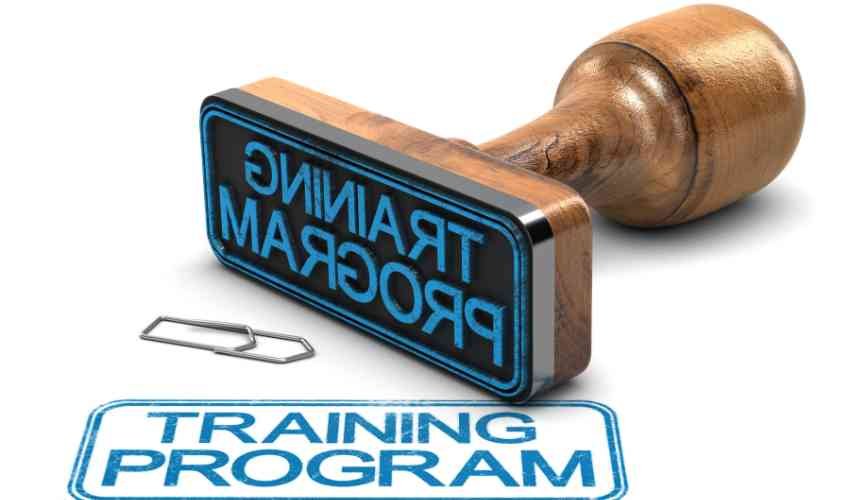
BLOG

Prerequisites Programs For HACCP
Food safety is critical in the manufacturing, packaging, and distribution industries. Implementing prerequisites programs for HACCP before establishing a Hazard Analysis and Critical Control Points (HACCP) system ensures a strong foundation for food safety practices. These programs address fundamental safety issues like hygiene, sanitation, and facility design, helping to create a safer production environment.
What Are Prerequisites Programs?
Prerequisite programs are essential steps that must be implemented before an HACCP plan is put in place. They are the basic operational conditions necessary to produce safe food. By addressing potential hazards before food enters the critical control points, these programs create a comprehensive safety net for the entire production process.
The 7 Prerequisites Programs for HACCP
The 7 prerequisite programs for HACCP are the critical programs required to maintain a robust food safety management system. These include:
Facilities Design and Construction
Ensuring that the facility is designed and maintained in a way that prevents contamination.
Supplier Control
Vetting suppliers to ensure they provide safe, high-quality raw materials.
Sanitation and Cleaning Procedures
Regular cleaning and sanitizing processes to eliminate contaminants.
Personal Hygiene
Ensuring all employees practice proper hygiene, such as handwashing and wearing appropriate protective gear.
Maintenance of Equipment
Keeping equipment clean and in working order to avoid contamination.
Pest Control
Implementing effective pest control measures.
Waste Management
Ensuring proper disposal of waste to avoid cross-contamination.
These 7 prerequisites programs for HACCP are foundational, allowing companies to mitigate risks before food safety hazards arise in production.
HACCP Prerequisites Program Checklist
Before implementing a HACCP system, a company must first ensure that it has all the prerequisite programs in place. A HACCP prerequisite program checklist can help track these essential components:
- Facility sanitation and hygiene protocols
- Employee hygiene practices
- Proper storage and handling procedures
- Maintenance schedules for equipment
- Food safety audits and inspections
- Pest control measures
- Training programs for staff
The checklist serves as a guide to ensure that every aspect of food safety is addressed before critical control points are monitored.
List of Prerequisites Programs for HACCP
The list of prerequisite programs for HACCP varies depending on the type of food business, but generally includes:
Good Manufacturing Practices (GMPs)
Good Manufacturing Practices (GMPs) are standards that govern the manufacturing process to ensure product safety.
Standard Operating Procedures (SOPs)
Standard Operating Procedures (SOPs) are detailed instructions on how to perform specific tasks to ensure consistency and safety.
Sanitation Standard Operating Procedures (SSOPs)
Sanitation Standard Operating Procedures (SSOPs) are specific protocols to ensure cleanliness and hygiene throughout the facility.
Training Programs
Training programs ensure employees are trained in food safety protocols, including HACCP 7 principles.
Record Keeping
Record Keeping is a system to document processes, audits, and corrective actions taken.
Equipment Maintenance Plans
Equipment Maintenance Plan is a regular maintenance schedule for machinery and tools to prevent malfunctions that could lead to contamination.
These prerequisite programs for HACCP work together to create a solid base on which a HACCP plan can be built.
Creating a HACCP Prerequisite Program Checklist
A HACCP prerequisite program checklist is a valuable tool to ensure that all necessary food safety measures are in place before implementing your HACCP principles and HACCP Plan. Here’s how to create an effective checklist:
List Each Prerequisite Program
Start by listing the 7 common prerequisites programs mentioned above, including any other specific programs relevant to your operations.
Define Program Requirements
Clearly define what each program involves, such as cleaning schedules, equipment maintenance, employee hygiene practices, and supplier requirements.
Assign Responsibilities
Identify who is responsible for each aspect of the program to ensure accountability and smooth implementation.
Set Monitoring and Verification Procedures
Establish procedures for regularly monitoring and verifying that each prerequisite program is followed correctly. This includes documentation, record-keeping, and regular audits.
Review and Update Regularly
Continually review and update your checklist to incorporate changes in regulations, new hazards, or improvements in technology.
Examples of Food Safety Prerequisite Programs in Action
Let’s look at a few practical examples of prerequisites programs for HACCP used in different food industries:
Dairy Processing
Regular cleaning and sanitization of milk tanks and pasteurization equipment, strict temperature controls, and maintaining sterile environments to prevent bacterial growth.
Bakery Operations
GMPs covering personal hygiene, allergen control during production, and pest control measures to prevent infestation.
Meat Processing
Pest control programs, facility maintenance, and stringent sanitation protocols to prevent cross-contamination of raw meat products.
These examples highlight how different food sectors implement food safety prerequisite programs to address specific risks in their production processes.
Conclusion
Implementing prerequisites programs for HACCP is the first step towards achieving HACCP certification and ensuring the safety and quality of food products. With these foundational programs in place, a business can build a robust HACCP system that meets both regulatory and industry standards. Understanding and utilizing the 7 prerequisite programs HACCP, as well as maintaining an up-to-date HACCP prerequisite program checklist, ensures that food safety practices remain strong from the ground up.

Prerequisites Programs For HACCP FAQs
What are HACCP prerequisites?
HACCP prerequisites programs are essential food safety programs that must be established before implementing a HACCP system. These programs address fundamental issues such as sanitation, facility design, personal hygiene, and more.
How many prerequisite programs for HACCP are there?
There are 7 prerequisites programs for HACCP, which cover key areas like sanitation, pest control, supplier management, and employee hygiene, forming the basis of food safety in any organization.
Why are prerequisite programs necessary before HACCP implementation?
Prerequisites programs for HACCP lay the groundwork for a HACCP system by addressing common hazards before food production begins. This ensures that critical control points can focus on specific risks, making the entire system more effective.
Can a company get HACCP certified without prerequisite programs?
No, a company cannot be HACCP certified without first establishing and maintaining prerequisite programs. These are essential for ensuring that food production is safe even before critical control points are identified.
How often should prerequisite programs be reviewed?
Prerequisites programs for HACCP should be reviewed regularly, typically during internal audits or after any significant change in the production process. Continuous monitoring and updating are essential for maintaining high food safety standards.
